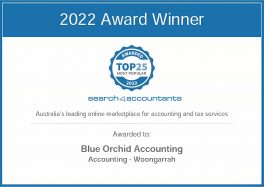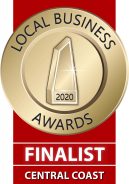There Are Four Main Business Structures Commonly Used By Businesses In Australia:
Sole Trader
- Is the simplest business structure.
- Is inexpensive to set up because there are few legal and tax formalities.
- You use your individual tax file number (TFN) when you lodge your income tax return.
- You can apply for an Australian Business Number (ABN) for your business and use this number for all your business dealings
- Legally responsible for all aspects of the business – debts and losses cannot be shared.
- Business income is treated as your individual income and you are solely responsible for any tax the business must pay.
- You must be registered for Goods and Services Tax (GST) if your annual GST turnover is $75,000 or more.
Partnership
- A partnership is an association of people who carry on a business as partners or receive income jointly.
- It needs its own TFN that you use when lodging its annual business income tax return.
- You can apply for an ABN for the partnership and use it for all the partnership’s business dealings.
- Managed and owned by two or more persons. Profits are shared between partners, as are losses.
- Each partner is responsible for the debts of the partnership, even if you did not directly incur or cause the debt.
- A partnership must be registered for GST if its annual GST turnover is $75,000 or more.
- If one partner resigns, the partnership must be dissolved.
Corporation
- An incorporated company is a distinct legal entity, regulated by the Australian Securities & Investments Commission (ASIC).
- Is a complex business structure, with higher set-up costs and administrative costs because of additional reporting requirements.
- Operations are controlled by its directors and the company is owned by its shareholders. A company provides some asset protection but directors can be legally liable for their actions and, in some cases, the debts of a company.
- It needs its own TFN that you use when lodging its annual business income tax return.
- A company registered under the Corporations Act 2001 is entitled to an ABN. A company that is not registered under the Corporations Act may register for an ABN if it is carrying on an enterprise in Australia.
- The money the business earns belongs to the company and pays income tax on its assessable income (profits) at the company tax rate, which is currently 30%.
- A company must be registered for GST if its annual GST turnover is $75,000 or more. The registration threshold for non-profit organisations is $150,000.
Trust
- Is an obligation imposed on a person – a trustee – to hold property or assets (such as business assets) for the benefit of others. These others are known as beneficiaries.
- Setting up a trust can be expensive, as a formal deed is required and there are formal yearly administrative tasks for the trustee to undertake. A trust deed outlines how the trust is to operate.
- If operating a business as a trust, the trustee is legally responsible for its operations. A trustee of a trust can be a company, providing some asset protection.
- It needs its own TFN that you use when lodging its annual business income tax return.
- If the trust is carrying on an enterprise in Australia, as the trustee you must register for an ABN for the trust.
- A trust must be registered for GST if its annual GST turnover is $75,000 or more. The registration threshold for non-profit organisations is $150,000.
- Whether or not a trust is liable to pay tax depends on what type of trust it is, the wording of its trust deed and whether any of the income the trust earns is distributed to its beneficiaries.
Since 2011, Blue Orchid Accounting has been providing clients throughout the Central Coast with a comprehensive range of taxation and accounting services. We strive to provide friendly, straightforward advice, helping ensure you’re enabled to make smarter financial decisions and further safeguard your wealth.













